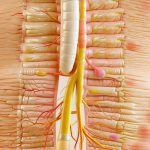The bladder, often taken for granted until something goes wrong, is a remarkably resilient organ responsible for storing urine produced by the kidneys. Maintaining its health is crucial not only for comfortable bodily function but also for overall well-being. While lifestyle factors like hydration and dietary habits play significant roles, the influence of micronutrients – vitamins specifically – on bladder tissue integrity and function is increasingly recognized. A healthy bladder relies on a complex interplay of cellular processes that are often supported, and sometimes even enhanced, by adequate vitamin intake. It’s important to understand this isn’t about ‘curing’ bladder conditions with vitamins; it’s about providing the building blocks for optimal tissue health and resilience as part of a broader approach to care.
Many people focus on vitamins in relation to immune function or energy levels, but their impact extends far deeper into specific organ systems. Bladder tissues, like all tissues in the body, undergo constant repair and regeneration. This process requires a steady supply of essential nutrients, including vitamins that act as antioxidants, promote collagen synthesis, reduce inflammation, and support nerve function—all vital for bladder health. Deficiencies in key vitamins can compromise these processes, potentially leading to increased vulnerability to irritation, infection, or long-term damage. Understanding which vitamins play what role empowers us to make informed choices about our diet and supplementation strategies, always in consultation with a healthcare professional.
Vitamin C & The Bladder Lining
Vitamin C, also known as ascorbic acid, is arguably one of the most well-known vitamins, primarily associated with immune support. However, its benefits extend far beyond fighting off colds. It’s a potent antioxidant, meaning it neutralizes free radicals – unstable molecules that can damage cells and tissues. The bladder lining, being directly exposed to waste products filtered by the kidneys, is particularly susceptible to oxidative stress caused by these free radicals. Vitamin C helps protect against this damage, maintaining the integrity of the urothelium, the specialized tissue lining the bladder.
The urothelium isn’t just a passive barrier; it actively regulates what enters and exits the bloodstream, protecting the body from harmful substances in urine while preventing irritation to the bladder itself. Vitamin C supports the production of collagen, a protein essential for the structural integrity of this lining. A strong, healthy urothelium is better equipped to resist infection and inflammation, contributing to overall bladder health. Furthermore, some research suggests vitamin C may help reduce the acidity of urine, which can be irritating to sensitive bladders, though more studies are needed in this area.
Increasing Vitamin C intake can be achieved through dietary sources like citrus fruits (oranges, lemons, grapefruit), berries, peppers, and broccoli. Supplementation is also an option, but it’s crucial to stay within recommended daily allowances as excessive amounts can cause digestive upset. It’s vital to remember that individual needs vary based on factors like age, health status, and dietary habits; a personalized approach guided by healthcare advice is always best.
Vitamin D & Bladder Function
Vitamin D, often dubbed the ‘sunshine vitamin’, plays a surprisingly important role beyond bone health. It’s increasingly recognized for its influence on immune function and inflammation—both of which are intimately linked to bladder health. While traditionally associated with calcium absorption, Vitamin D receptors are found throughout the body, including within the bladder tissue itself. This suggests it has direct effects on cellular processes within the bladder.
Vitamin D helps modulate the immune response, preventing an overactive inflammatory reaction that can damage bladder tissues. Chronic inflammation is a common factor in many bladder conditions, and managing it is essential for symptom relief. Furthermore, some studies indicate Vitamin D may help regulate nerve function in the bladder, potentially improving bladder control and reducing urgency or frequency. Deficiencies have been linked to increased susceptibility to urinary tract infections (UTIs) and interstitial cystitis/bladder pain syndrome (IC/BPS).
Maintaining adequate Vitamin D levels can be challenging, especially for those living in northern latitudes or with limited sun exposure. Dietary sources include fatty fish (salmon, tuna), egg yolks, and fortified foods like milk and cereals. Supplementation is often necessary, but it’s critical to have your Vitamin D levels tested by a healthcare professional before starting supplementation, as excessive intake can be harmful. A blood test will help determine the appropriate dosage for your individual needs.
B Vitamins & Nerve Support
The bladder relies on a complex network of nerves to signal when it’s full and to control the process of urination. These nerves are incredibly sensitive, and their proper functioning is essential for maintaining continence and avoiding uncomfortable symptoms like urgency or frequency. B vitamins, particularly B1 (thiamine), B6 (pyridoxine), and B12 (cobalamin), play a vital role in nerve health and function.
Thiamine supports the metabolism of carbohydrates, providing energy to nerve cells, while pyridoxine is crucial for neurotransmitter synthesis – the chemical messengers that transmit signals between nerves. Vitamin B12 is essential for maintaining the myelin sheath, a protective covering around nerve fibers that allows for efficient signal transmission. Damage or deficiency in these vitamins can lead to neuropathy, or nerve damage, which can disrupt bladder control and contribute to urinary dysfunction.
Dietary sources of B vitamins are abundant: whole grains, lean meats, fish, eggs, dairy products, leafy green vegetables, and legumes. However, certain individuals—such as older adults, those with digestive disorders, or vegans/vegetarians—may be at risk for deficiencies and could benefit from supplementation under the guidance of a healthcare provider. B vitamins are water-soluble, meaning they aren’t stored in the body and need to be replenished regularly through diet or supplements.
It’s important to reiterate that vitamin intake is just one piece of the puzzle when it comes to bladder health. A holistic approach that incorporates adequate hydration, a balanced diet, regular exercise, stress management, and avoidance of irritants (like caffeine and alcohol) is essential for long-term well-being. Furthermore, any concerns about bladder symptoms should be discussed with a healthcare professional who can provide an accurate diagnosis and personalized treatment plan. The information provided here is intended for general knowledge and informational purposes only, and does not constitute medical advice.





















